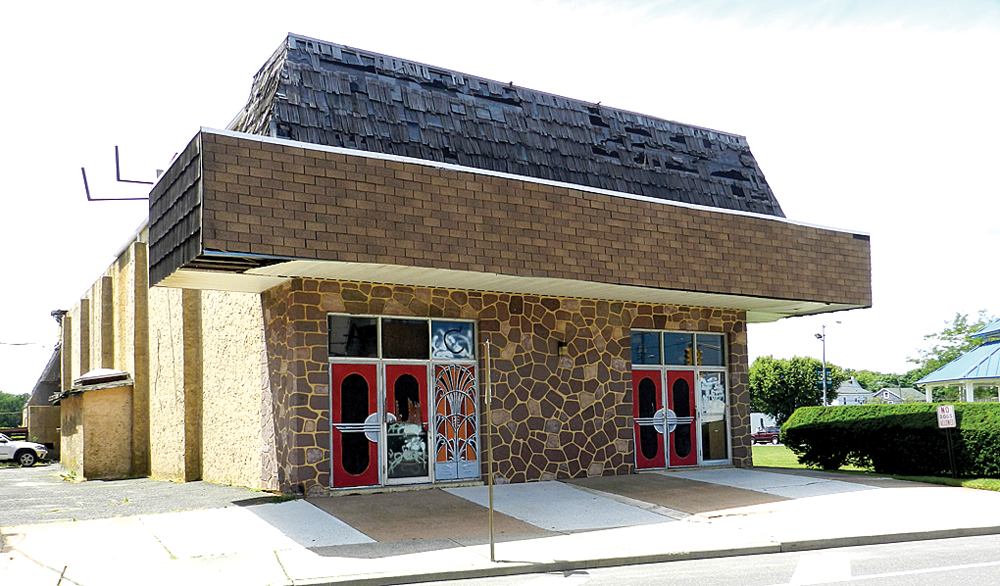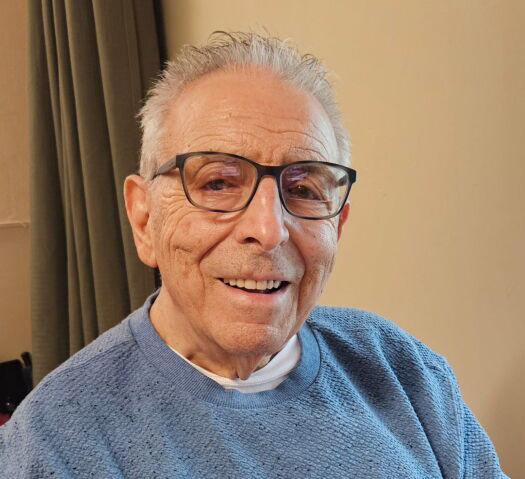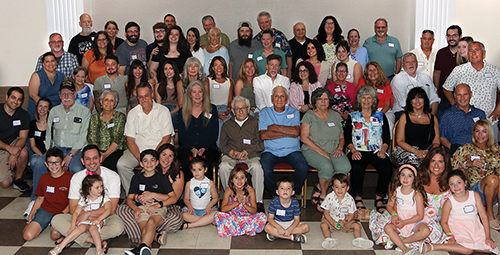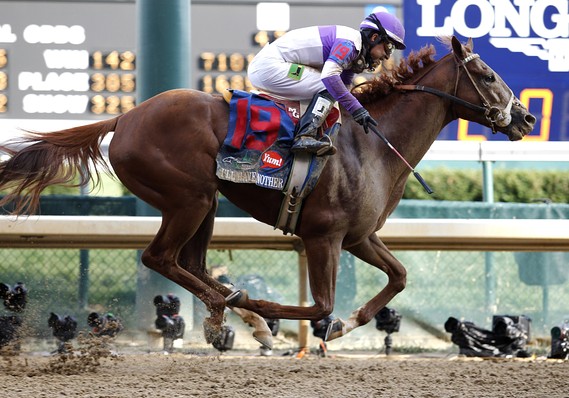
No Triple Crown for 2012
June 8, 2012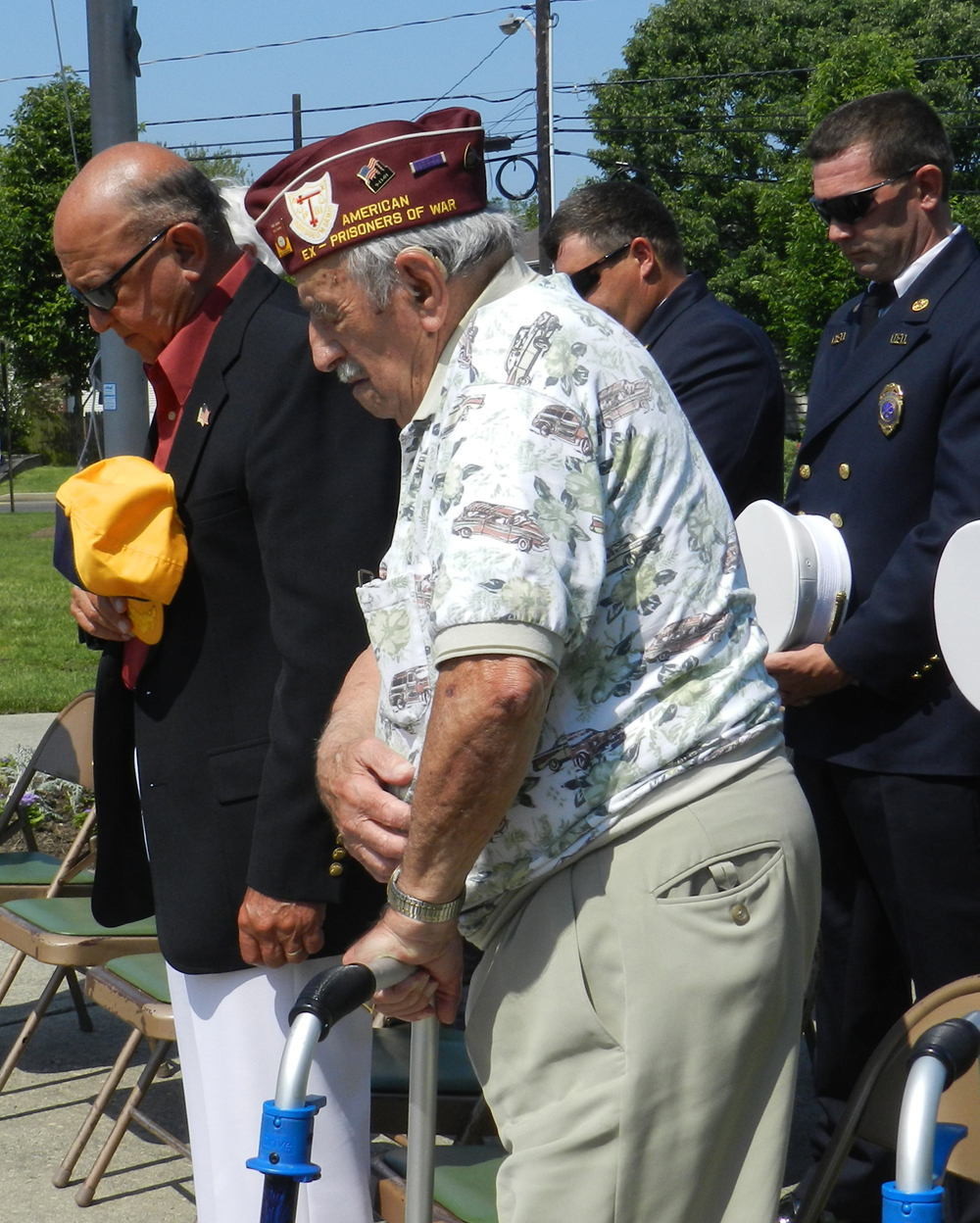
Oceanport WWII POW remembers war
June 8, 2012

 By Patty Booth O’Neill
By Patty Booth O’Neill
Long Branch – The city’s Zoning Board will decide if the former movie theater and the building next to it in West End can be converted into a synagogue, which is a non-permitted use in that zone. The public meeting will occur at City Hall on June 11, at 7:00pm.
 On Tuesday morning, West End business owners and landlords met to discuss their concerns about the potential effects a religious complex will have on the area. The main concern — or the only concern — seemed to be parking, and how that would impact other businesses.
On Tuesday morning, West End business owners and landlords met to discuss their concerns about the potential effects a religious complex will have on the area. The main concern — or the only concern — seemed to be parking, and how that would impact other businesses.
“We don’t care if it’s a synagogue, church or a mosque, we just don’t want a religious establishment there,” insisted one person. “And it’s not about the movie theater. It’s about parking!”
It has never been a secret in West End that the lack of parking has been a major concern over the years. Chabad of the Shore, if approved, will take up all the spaces behind the movie theater that now offers free parking to patrons of other businesses.
“Those spots are vital to the survival of our business,” said one business owner.
Plans for construction show that Menachem Learning Institute, Inc., the applicant, was rejected on April 20, by the zoning officer as the proposed use, a place of worship, is not permitted in a C-3 (commercial) zone. The property in question is owned by Ocean Avenue Partners, LLC, with a contact Lawrence Pahuskin of New York as the landlord.
Plans on display at the Tuesday meeting showed the synagogue plans extended to the end of the block, to include the building that houses Tre Amici and the pink apartment building behind it. But plans obtained by The Link News did not show that to be true, and city officials also say it’s not true.
But, it was noted, the same landlord owns all the buildings south to Tre Amici and west up to Natural Healthcare Center, including the pink apartment house.
Many attending the meeting were afraid of the unknown. Some sample comments:
“Will Chabad services on Saturdays affect events going on in the park?”
“And why a tax-exempt organization? That’s a lot of prime real estate for the
city not to be able to collect taxes on?”
“Can the parking spaces be used when they’re not there?”
“What if they put a fence up around their parking lot?”
Another concern was the impact on new businesses wanting to open in West End. When a prospectuve business goes to the city for approval, it depends on how much parking they will need. “So now that those parking spaces behind the theater will no long be counted, how can a new business get approval?” one businessman asked.
According to papers filed with the city, the property contains 33,388 square feet and two buildings. The first is the vacant theater; the second has two current businesses, Mike’s West End Deli and Bagel and Lou’s Uniforms. That building has a second level with three vacant apartments.
Behind those buildings is a large parking area. According to the applicant, the buildings are obsolete and in need of repair, and the parking lots are in poor condition. What they intend to do is demolish the existing buildings and build a two story, 30-foot high synagogue. It will be 20,321 square feet of gross floor area.
The first floor will contain a sanctuary, multipurpose room, lobby and kitchen. The second floor will have offices, classrooms and a study hall. The sanctuary will have 200 seats and will be used for regular services throughout the year.
They expect peak attendance between Memorial Day and Labor Day.
Members of the zoning board must decide that if they do allow a non-permitted use to a building, what impact it will have on the surrounding businesses. Will it be a detriment or will it be an advantage to the area?
Architects for the proposed synagogue have designed a parking lot with 60 spaces, which they say exceeds the requirement of 50 based on the number of seats in the sanctuary.
The new parking lot will extend right up to Dr. James Proodian’s Natural Health Care Center.
“I bought my building on the contingency that I would have access to that parking area. The city promised me my patients could park there,” said Dr. Proodian. “Now what? I feel I was lied to. I put money into that lot. I
wouldn’t have bought the building if I knew some day I’d lose the parking.”
He also felt that not having parking would hurt the sale of his building if the need occurred. “I feel the city screwed me, not the people trying to build there,” he added.
Not all businesses in West End were against the new plans, though they did not attend (or speak up at) the meeting.
“I’m happy they’re tearing down that eyesore,” said a few business owners. “I’m looking forward to the added business.”
In the applicant’s paperwork they describe a typical day with minimal parking demands. Two rabbis, administrative staff along with janitors will be on site. In addition, they say small study groups of up to 15 people may be anticipated. On weekday nights, private study groups of 25 to 50 people will utilize the building.
During typical Saturday morning or holiday services, the Chabad of the Shore expects up to 140 attendees, and 50 percent of those are expected to walk, as Jewish law prohibits driving on most holy days. Many of the congregants will be local residents, according to the report.
The applicant stated that with the city’s proposed ratio of one parking space per four congregants, up to 35 parked vehicles can be expected during this time. However, that ordinance is for a zone that allows places of worship.
Chabad of the Shore expects between 40 and 75 students on Sunday mornings for religious classes. They expect those classes to run from 9:45 a.m. to 12:15 p.m., and say the 60 parking spaces are sufficient. It is anticipated by the applicant that all parents will drive the children to the synagogue, but not all at the same time, to avoid a traffic situation.
It is anticipated that during Rosh Hashanah and Yom Kippur, the sanctuary and multi-purpose rooms will be filled to capacity with about 300 people. Parking, they say, will take place using the 60-space lot and legal on-street parking will be utilized.
Attorneys for the applicants will argue to the zoning board that they should allow the synagogue to be built in the zone as it will not be a detriment but will be beneficial to the community. They have supplied traffic studies and say that a majority of those who will attend the house of worship will walk.
Another person attending the meeting said that the city is usually tough on granting non conforming use in the wrong zone. And, he said, a religious establishment is not permitted within 2,500 linear feet of another one. “One thing we need are faces at Monday night’s meeting. Everyone here should bring 10-20 people. They need to know our concerns,” said a concerned business owner.



